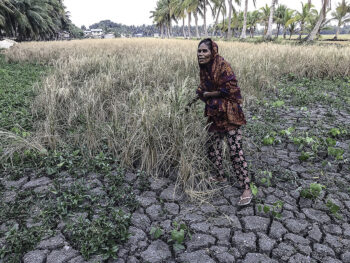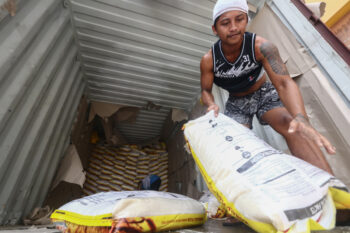MELBOURNE, Australia (MindaNews/29 July) — In principle, being a mayor or a governor can be an on-the-job training of sorts for the presidency. Unfortunately, recent experience has shown that local government has become a breeding ground for dynastic politicians.
According to noted Colombian academic, Pablo Querubin, in an article published in the Harvard Academy for International and Area Studies last October 2011, Political Reform and Elite Persistence: Term Limits and Political Dynasties in the Philippines, the three term limitation set forth in the Philippine Constitution for local elected officials has actually facilitated the least desirable result for the nation’s political system—the unabated reign of political dynasties.
Traditional politicians have found a way to beat the three-term limit by employing the revolving door scheme amongst family members. Thus, establishing at the local level a public governance syndicate described by respected Mindanao civil society activist, Guiamel Alim, as “clan-inclusive government”.
Sadly, such an adverse outcome has also led to the inculturation of the myopic and parochial governance frame of mind. Clearly demonstrated by the local politico who can only be bothered by projects that have an immediate and perceptible impact and most likely simply as a knee-jerk response to the clamor of the day from his or her supporters. Of course, such is the prototypical dynastic politician.
Therefore, voters should be extremely wary of Presidentiables propping up their local government credentials. Indeed, the only presidential candidate that deserves serious consideration from the electorate is the one who displays these two particular leadership characteristics.
First, he has an acute appreciation of the challenges we face today. Our population now stands at a little over a 100 million. And given the pressing global environmental concerns, food scarcity is a very distinct and frightening possibility. Food production and climate change is a curious mix. We should be able to rely on our most senior leader to know what needs to be done to find the right balance.
Another fundamental concern with such a massive population is to decrease the number of the uneducated and the unhealthy. Hence, there will be a firm commitment to establish a genuine comprehensive national public health management framework from this presidential standout. And as far as improving our education system is concerned, promises of more classrooms and textbooks would no longer suffice for him.
Additionally however, a worthy presidential candidate also has a keen eye on the future. Meaning, he must have a discernible long term development perspective. Therefore, the same old spiels on “uplifting the masses out of poverty” or “creating a strong republic” or “paving a straight road” will not be heard during his campaign.
His team would definitely spurn “soapbox pronouncements” that are only inspired by the news of the day and filled with spin and stop-gap measures. Because a viable Presidentiable is ready and willing to set economic building-blocks for future generations no matter how unpopular these undertakings may be.
Second, a notable presidential aspirant would have the audacity and smarts to present to the electorate a detailed plan of action for his term of office. This program shall embody specific public policies which his administration will translate into decisive action once he assumes office.
This documented action plan would demonstrate his acumen and determination to be the Chief Executive of the republic. At the very least, having such an itemized and comprehensive agenda for his tenure in the top job will distinguish him from conventional candidates who can only present political party platforms replete with slogans and sound-bytes that say absolutely nothing about genuine economic development.
In sum, when evaluating the declared candidates for the 2016 presidential race, it would be good to bear in mind the way the Constitutional Court of Korea described the office of their President—
“The President is not the President merely for part of the population or a certain particular political faction that supported him or her at the past election, but he or she is the President of the entire community organized as the state and is the President for the entire constituents. The President is obligated to unify the social community by serving the entire population beyond that segment of the population supporting him or her.” [Impeachment of the President (Roh Moo-hyun) Case (16-1 KCCR 609, 2004Hun-Na1, May 14, 2004)]
Indeed, the reality illustrated above is very rarely pointed out in our context but the President, once elected, becomes the leader of all Filipinos and not just of those who voted for him. Correspondingly, the quality of his tenure in office impacts all of us regardless of political affiliations.
Finally, it is not survey results, unsubstantiated accusations against the current administration or grandiose but haphazard reform proposal which will demonstrate the worthiness of a Presidentiable. It is the depth and viability of his presentations to the electorate during the campaign period which will prove whether he can be a true and capable leader of the entire republic. (Atty. Michael Henry Ll. Yusingco, LL.M is a practicing lawyer. He is the author of the book “Rethinking the Bangsamoro Perspective.” He conducts research on current issues in state-building, decentralization and constitutionalism.)






